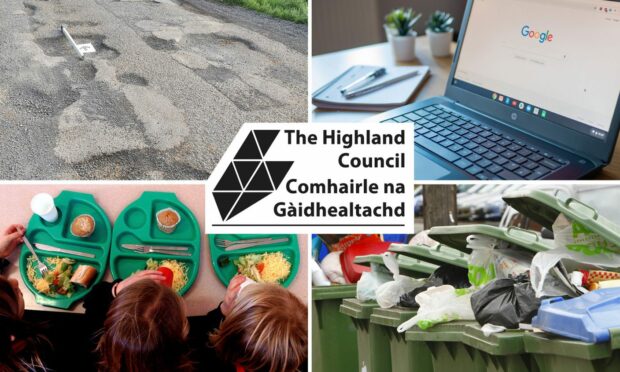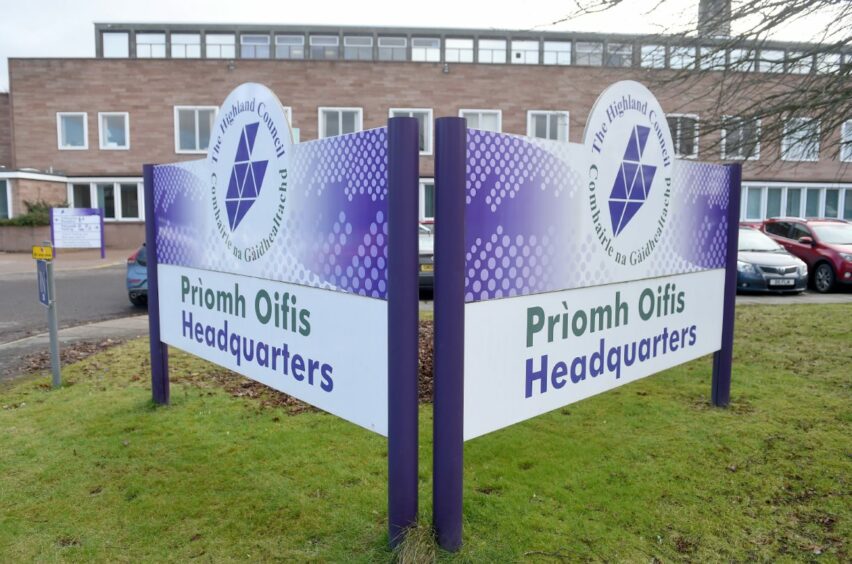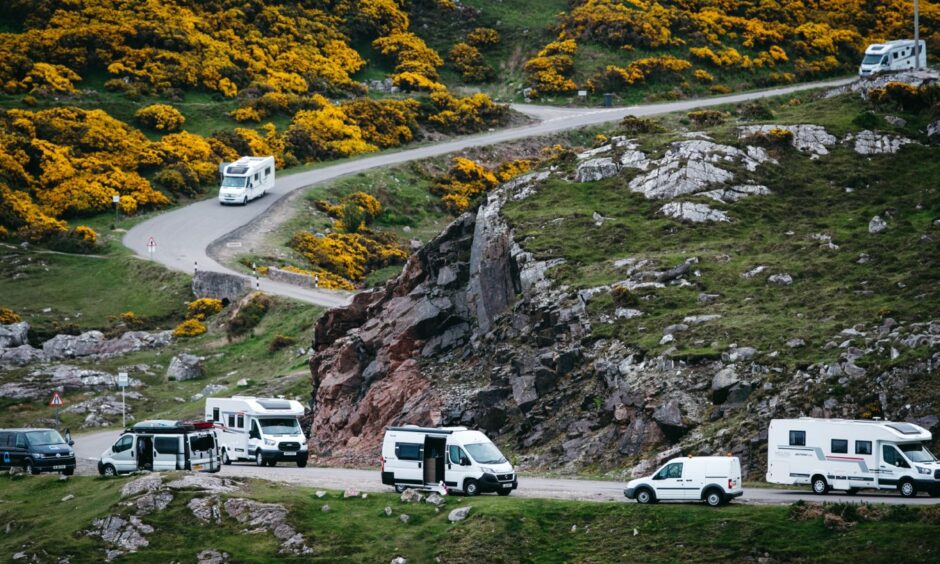A question mark remains over Highland Council’s long-term viability as the local authority prepares to cut £66m from its budget.
Councillors will meet in Inverness on Thursday to agree proposals to balance its £602m annual plan.
The papers for the meeting make grim reading.
There are repeated mentions of the dire financial situation that councils are facing across the country.
After years of budget black holes and forecasts of financial Armageddon, it comes as no surprise.
There is some light for households as council tax is likely to be frozen for 2024-25.
But on the whole, we’re being warned to buckle up for another bumpy year.
Financial challenge ‘has not altered’
A year has passed since the council’s former chief financial officer Ed Foster issued a stark warning about its future financial sustainability.
He said: “The council, in its current form and model of service delivery, is not financially sustainable over the medium-term.”
This year’s budget paper makes reference to that bold statement.
The bad news is that the landscape hasn’t dramatically changed.
The council’s new head of corporate finance, Brian Porter, said: “The underlying risk and challenge that faces the council, and led to that statement, has not altered.
“The council remains in a still relatively high inflation and interest rate
environment.
“Costs of service delivery are increasing, as are demands for services in
many areas, and community expectations.”
The situation is undoubtedly bleak, but there does appear to be some optimism in Mr Porter’s final assessment of the situation.
He said: “Previous decisions by the council relating to the capital programme and bringing that to a level that the council considered affordable, prudent and sustainable, is a significant factor and a clear and positive decision to improve ongoing financial sustainability of the council.
“It is [my] view that the council is therefore making important and positive steps towards improving its medium to long-term financial sustainability.”
What are some of the savings?
The situation is summed up at the head of a list of potential savings.
A statement reads: “Highland Council has made more than £190m in savings in the past 11 years – an average of £17m per annum.
“But in light of the available budget, we have to do even more.”
The council’s budget has been divided into four themes.
It calls the first “developing its current operating model”.
What this essentially means is cutting back what’s currently being offered.
Among its proposed savings are £7m from redesigning its adult social care model.
The papers claim that the public “will benefit from more person-centred approaches” but the details are sparse.
Using AI to automate some processes will save £1.6m in 2023-24 while what the council calls “modernisation of cleaning services” will save £41,000 in 2024-25.
Effectively, that means more robotic vacuums keeping our schools tidy.
Permits for garden waste bins will also be going up – but only by 2.5%.
Bringing in more cash
As well as cutting back on the services it currently offers, the council says it needs to find new ways to generate income as a way to keep things running.
Around £600,000 will be raised by increasing the minimum parking charge from £2 to £3.
There will also be a voluntary motorhome passport scheme which the council hopes will raise £1.5m.
This would involve some of the 200,000 motorhome users contributing £40 towards the upkeep of the region’s roads and amenities.
But to reach the budgeted amount, around one-fifth of those users would have to stump up.
Whether this turns out to be a stroke of genius or a pie-in-the-sky dream will have become clear by the end of the tourist season.
Highland councillors will debate the proposals on Thursday.
Its final budget must be set before March 11.




Conversation